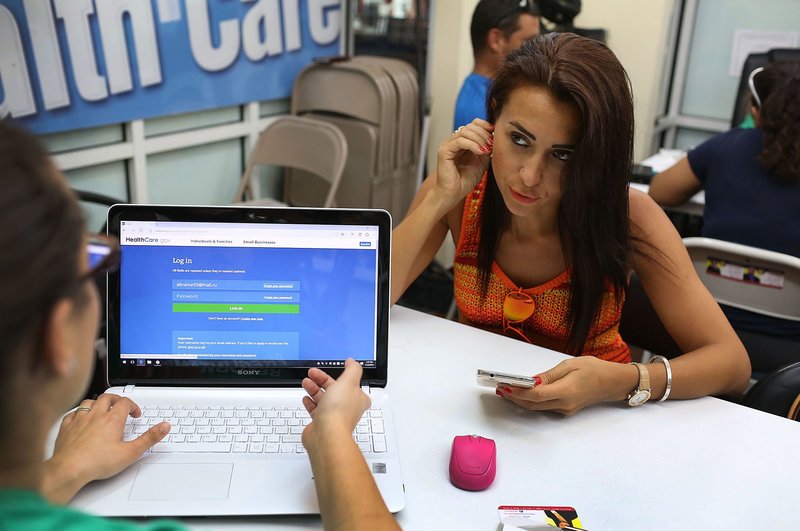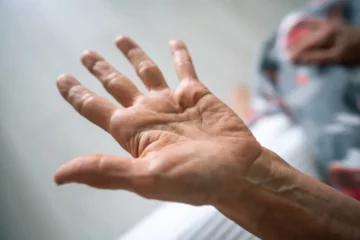MIAMI BEACH, Fla.—Health officials are investigating a cluster of possible Zika cases in Miami Beach, suggesting that transmission of the virus by mosquitoes is more widespread in one of the nation’s more populous counties than originally thought, and that efforts to contain it are falling short.
At least one other area of Miami-Dade County is also under investigation for a possible cluster of mosquito-borne transmission of Zika, according to people familiar with the investigations.
The revelations come after Florida health officials had identified one neighborhood north of downtown Miami as a transmission zone.
Health officials are likely now to expand that zone, where they have warned the public that mosquito-borne transmission of Zika is occurring, but it wasn’t clear how large the new zone will be, these people said. Deliberations are under way over whether to designate small pockets or one large one, these people said.
The news is just what many in Florida have feared—that the outbreak would spread, hurting the state’s tourist-dependent economy, said Susan MacManus, a University of South Florida political-science professor. “The business community is very alarmed and of course, so are health officials,” she said.
Florida health officials had been reporting for more than two weeks that they believed mosquitoes were transmitting Zika only within a small area of roughly one square mile in the Wynwood neighborhood, just north of downtown Miami.
“This remains the only area of the state where the department has confirmed there are local transmissions of Zika,” the department said in a release Thursday.
The Centers for Disease Control and Prevention has advised pregnant women to avoid that area. The virus can cause serious birth defects if a woman contracts it while pregnant, including abnormally small heads associated with severe brain damage.
“It’s very, very scary to know that more and more places are being infected with Zika,” said Fiorella Olcese, who is 38 years old and 29 weeks pregnant with her first baby.
Already Ms. Olcese, who lives in Miami’s Brickell neighborhood, was being “super careful,” dressing in jeans, long sleeves, a hat and rain boots to go outside to walk her dog.
Melissa Berthier, a spokeswoman for the city of Miami Beach, said that “as of yet, the Department of Health hasn’t confirmed any cases in Miami Beach” to the city. Regardless, she said the city would continue pursuing anti-mosquito measures, which began in January and ramped up in June.
But from the start, cases have been reported that have no clear connection to Wynwood, including the first case reported: a pregnant woman who fell ill in early July.
That suggested the possibility that mosquitoes could be spreading Zika elsewhere. Now, 10 of a total of 35 Zika cases reported to date have no connection to the designated zone in Wynwood.
Nine of those cases are in Miami-Dade County. The Department of Health and CDC have said that one case doesn’t mean active transmission by mosquitoes. But two or more within a specific period of time form a possible cluster.
Two cases have been confirmed in Miami Beach and a small number of others are under investigation, said people familiar with the investigation.
“I think everybody is concerned. However, I think you have to put the concern in perspective,” said Jerry Libbin, president of the Miami Beach Chamber of Commerce. “You have potentially two cases. Not to minimize it in any way, but we have to look at what Zika is. If you’re not pregnant or want to become pregnant, it is something that is treated or runs its course after a few days.”
Mr. Libbin said the city has been assertive in responding to the Zika threat—working with county officials, identifying areas of standing water that could be breeding grounds for mosquitoes and educating business leaders on how to make consumers safer.
“I think it’s a matter of an approach that has to be rational,” he said. “You have to take precautions, but it’s not something that I think should keep people from visiting our beautiful city.”
The news bolsters an argument made by business owners in the Wynwood neighborhood, which has been in the spotlight until now. Many have questioned why the state has continued to delineate the one-square-mile zone when so many Zika cases have been acquired outside that area.
“It’s absolutely pivotal and critically important that the messaging remove the focus from Wynwood and start talking about the broader region,” said Joseph Furst, chairman of the Wynwood Business Improvement District, which represents more than 400 property owners in the area.
The Food and Drug Administration said Thursday a “small number” of blood donations are under investigation for possible Zika contamination. The FDA said on July 27 blood banks that can’t screen for Zika infections can’t collect blood in Florida’s Miami-Dade and Broward counties. The FDA said states investigate possible Zika-positive blood donations and declined to say how many cases were under investigation or where. The FDA said no transfusion transmission of the virus has been reported in the U.S. or its territories.
Blood donations suspected of Zika contamination undergo repeated tests, in some cases requiring donors to undergo further testing. Results can take days or weeks, said Susan Stramer, vice president of scientific affairs at the American Red Cross, which is screening blood donations for the Zika virus in Alabama, Georgia, Florida, South Carolina and Mississippi.
Ms. Stramer said she is unaware of any donations in which the Zika virus was confirmed.
[Source: The wall Street journal]




